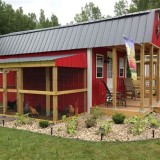Is Warm White Light Better? Essential Aspects to Consider
The choice between different types of lighting can significantly impact the ambiance and functionality of a space. Warm white light has become increasingly popular due to its purported benefits. Understanding the essential aspects of warm white light will help you make informed decisions about its suitability for your needs.
Color Temperature and Warmth
Color temperature is measured in Kelvins (K), and it refers to the perceived warmth or coolness of light. Warm white light typically ranges from 2700K to 3500K, emitting a cozy, yellowish glow. Higher color temperatures (above 4000K) produce a cooler, bluish light often associated with commercial spaces and daylight.
Atmosphere and Ambiance
Warm white light has been shown to create a more inviting and relaxing atmosphere. It can foster a sense of comfort and warmth, making it ideal for homes, living rooms, and bedrooms. The soft, golden hues of warm white light can promote relaxation and well-being.
Visual Acuity and Color Accuracy
Contrary to popular belief, warm white light can provide sufficient visual acuity for tasks such as reading and working. However, it is less suitable for tasks requiring precise color matching or detail-oriented work, as the yellowish tint can alter color perception.
Health and Circadian Rhythm
Exposure to warm white light at night may disrupt circadian rhythms and affect sleep quality. Studies have shown that warmer light can suppress melatonin production, which is essential for falling asleep. Therefore, it is recommended to avoid using warm white light as the primary light source in bedrooms before bedtime.
Energy Efficiency and Lifespan
In terms of energy efficiency, warm white LED bulbs are generally more efficient than incandescent bulbs. However, they consume slightly more energy than cool white LED bulbs. Warm white LED bulbs typically have a longer lifespan than incandescent bulbs, lasting up to 50,000 hours or more.
Aesthetics and Design
The warm, golden glow of warm white light can enhance the aesthetics of a space by making it feel cozy and inviting. It can be used to create intimate and romantic atmospheres or to complement warm-toned interiors.
Conclusion
Whether warm white light is better than other types depends on your specific needs and preferences. It excels in creating cozy and inviting atmospheres, while its potential impact on visual acuity, circadian rhythms, and energy efficiency should be considered. By understanding the essential aspects of warm white light, you can make informed decisions about its suitability and optimize its use in your home or workspace.
Why Is Warm White A Better Lighting For The Inside Of Homes Quora

The Difference Between Warm White And Cool Led Lights

Led Down Light Cob 15w Warm White

Warm White Or Cool Which One Should You Choose Liquidleds

Murphy Lightings
Why Are Lights So White Versus Yellow Warmer In Asian Restaurants Homes S Etc Quora

Warm White Vs Cool What S The Difference Photo Examples Lighting

The Difference Between Warm White And Cool Led Lights

Warm White Light

How To Use Cool White Lights








